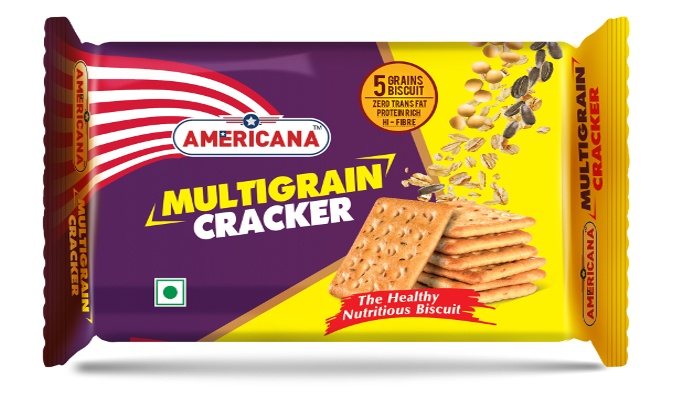Association with One8, the brand run by cricketer Virat Kohli, has contributed a full 10 percent of Puma India sales for the global sportswear brand Puma in 2019 fiscal year, helping the German brand clock an overall 23 percent growth in revenue, and corner the numero uno slot. The achievement comes amidst plunging sales across all segments from soaps to biscuits to automobiles, leave alone premium sportswear.
According to a PTI report: The achievement is also significant as unlike rivals Nike and adidas, Puma was a late entrant, beginning operations only in 2006 in the country coupled with the fact that Puma has done such collaboration for the first in the country.
According to the company, Puma’s collaboration with the Indian cricket captain saw a massive rise in sales in FY2019 with sales through One8 accounting for almost 10 per cent of its overall sales, and cementing the leadership position by a wider margin.
With an annual turnover of Rs 1,413 crore in FY2019, Puma has taken a full 14 percentage points lead over the immediate rival Adidas which recorded a revenue of Rs 1,250 crore, while the same is almost double that of Nike’s with a Rs 831 crore revenue. Puma’s sales gap with adidas was just 2.4 percent in FY2018.
“We have cemented our leadership position as the country’s number one sports brand with a revenue growth of 23 percent at Rs 1,413 crore in FY19, in a market where retail spending has been sluggish due to a the general slowdown,” Puma was quoted by PTI as saying.
It attributed the performance to the better show in tier II and III markets, while its online sales soared 27 percent, offline clipped at 15 percent, and the ‘like to like’ stores sales rose 17 percent across its 373 outlets, it said, adding overall growth was also boosted by categories like women’s.
“It’s been a great partnering with Puma to launch One8. I’ve had the opportunity to create my own personalised collection in collaboration with Puma and become the first sportsperson to partner with Puma for a product line such as this,” Kohli, who is also the global brand ambassador for Puma told through a statement.
Abhishek Ganguly, Managing Director of Puma India chipped in saying, “Our collaboration with Kohli’s One8 saw an exponential rise in sales in FY19, accounting for almost 10 percent of our total sales.”
And the German company expects the good show to continue with its global chief executive Bjorn Gulden expecting a major bump in sales in 2020 with the Olympics and T20 championships around the corner.
“India is a strategic market for us and we are thrilled to see the performance. Being the No 1 brand in India is a reflection of how well we understand our consumers and how pleased they are with our products,” Gulden was quoted in the statement.
Unveiling the global sales numbers last week, Gulden described 2019 as “the best year in Puma’s history” as worldwide revenue surged to 5.5 billion euros, up 18.4 percent and he highlighted India as a strong driver of growth in Asia.
“Year 2019 has been fantastic for us globally and in India. Our partnership with Kohli has been one of the most successful for us globally. Puma One8 continues to grow steadily,” Ganguly said, adding the tie-up with the cricket captain is the first of its kind for Puma in the country where they have also created a complete line with him.
Tie-up with Virat Kohli's One8 contributes 10 pc of Puma India sales
Fashion E-commerce Start-ups: Challenges in the Indian scenario
With the growth of the Internet over the past few years, the e-commerce sector has seen a major shift in strategies and developments. With a share of 4 to 5 percent in the total retail sales of country, the Indian e-commerce market is the second largest market in the world after the USA. Not just this, it is also increasing at a steady rate of 10 to 15 percent.
With a change in the economy and education scenario over the past few decade, the standard of living of the urban masses and their aspirations have seen a major shift. The advent of the Internet has only made it easier by making the world available to them on their smartphones. This, in turn, has eased people into the idea of shopping online which is now gradually trickling down to the non-urban population as well. Good news for all, but, definitely challenging for the new entrants in the sector as the market becomes more and more competitive.
Challenges Faced as a New Entrant
The main issue that we have faced so far has been reconciling with buyers and suppliers which requires an exhaustive computation before one can assess their GST. There’s a lot of back and forth involved to get the books of accounts in place for all the parties involved. The entire process is tedious, and a huge chunk of time and effort goes into this when you are a start-up. This, in the long run, means the time and attention spent on the development of the actual product or service gets compromised.
In this fast growing e-commerce market, we compete with infinite brands each day, offering same products and service as us. We can’t look at them and say we’ll be do it better. The only key to success is an innovative strategy – how can things be done differently. Balancing the key factors to attain profitability is the sternest challenge for us. Increasing sales is definitely one way to grow the business but finding ways to cut inventory cost, improve marketing efficiency, reduce shipping costs and control order return can potentially prove to be discouraging at times.
The e-commerce space witnesses technological developments routinely. While this elevates the shopping experience and empowers the consumers, it places pressure on startups like us to not have any technical issue while running an online store. All of it requires the deployment of manual resources and cannot just be solved through cloud services alone.
Branding and Start-Up Challenges
The first and foremost challenge for any new entrant in the market is attaining customer’s trust, especially when you are in the e-commerce sphere. With so many competitors already present and more and more entrants coming into the market almost everyday, gaining visibility is increasingly becoming an uphill task. Identifying a niche and working actively towards it helps largely. It’s easier and more practical to start from a niche and expand than the other way around.
The second thing that is a major challenge is gaining a potential customer’s trust and establishing credibility. When the customer can’t touch or feel your product, it’s rather difficult to convince them of its quality, which in our case, is the USP.
Logistics and payment gateways charge high commissions which ultimately influences the price of the product. The logistics of Cash on Delivery as a service is another problem that is often faced by e-commerce setups. Last but not the least, as per our law, the customer can reject or deny an order just in case he changes his mind. These increase return rates and overall costs and are most common for COD orders.
Being not so familiar with the complex arena of the ever growing digital space, we try to have a brainstorming session daily to plan and execute creative initiatives and new capacities. Building a digital strategy to adjust marketing focus from brand and services/products to the end customer is something that we always try to inculcate in our system.
Implementation of well-established payment platform and consumer authentication was another big hurdle we experienced. Digitisation comes with fraud and cyber risks which can easily target companies to be a victim of malware. Be it the data theft or malicious customer targeting brands, we ensure extra attention to try and be safe from these malicious activities. They are a threat not only in terms of time consumption and financial losses, but also in terms of market credibility.
Getting customer support oriented resources is one of the most challenging parts for any start-up. Reassuring customers of a situation to keep them from hitting the panic button and coming up with negative feedback on social media is something that start-up have to aim for. Customers come first and everything we do has to be as per their needs and convenience. There will be difficult situations that one may face with a few customers but taking them as lessons is the best way forward.
Impact of New FDI and DIPP
There’s ease of doing business for start-ups with the new policies in place. The process to register a new company is fairly easy which makes the initial phase a bit easier. One can focus on the company versus all the legalisations, etc., at this point which really helps when you are a small company.
As an impact, the leading online marketplaces in India today, are partnering up with local players instead of foreign players. These new government initiatives, eventually, will force foreign players to locally host data in India thus increasing accessibility and traceability. This in turn might eventually impact how accountable they can be held for their activities and transactions in the country.
Visit any shopping mall and you’ll find people who enjoy window shopping and eventually order clothes from online platforms that offer more lucrative discounts. To create a level playing field between offline and online retail, new FDI draft prohibits e-commerce entities to influence the sale price directly or indirectly. Also, the circular does not allow the seller to sell more than 25 percent of its products on its platform. Hence, it compels the brand to be listed on at least four or more marketplaces to successfully run the business.
Surviving in the cutthroat e-commerce competition, which is no less than war, requires some outstanding strategies. Having a sense of purpose and sticking to it is the key. To achieve desirable growth, attracting the right talent and having the right leader plays a huge role. Customers will always expect fast, personal service and one must try to keep this in mind at all times. One needs to invest in creating an experience that competitors can’t provide to reap the rewards accordingly. Picking out a niche and working to fulfil its needs is the best way to penetrate the market, and once trust is established, there’s no better way of marketing than word of mouth or recommendations by existing customers. The same gets eventually translated to social media and product review pages where new users get to see how other people have liked or interacted with a brand so far and make their choice accordingly.
The masses, in today’s times, really rive how others around them make purchasing decisions. And with the influx of the influencer tide, it’s increasing by the day. So, all in all, it’s important to stick to one’s ideology and aesthetic and work towards spreading a linear message that your niche will resonate with.
Samir Mishra, COO, V-Mart Retail
The board of directors at V-Mart Retail Ltd. has announced the appointment of Samir Misra as its Chief Operating Officer.
In this role Mishra will be responsible for spearheading the development and execution of long-term strategies with the goal of increasing shareholder value.
He has 15 years of multi-faceted industry experience with some of the country’s leading retailers and brings with him deep understanding of the Indian consumer mind-set, subject knowledge in product differentiation and innovation and savoir-faire of rapid business scale up and expansion.
In his last assignment he has helmed leadership roles at Aditya Birla Group for brands like Pantaloons & The Collective
“Samir Mishra’s appointment is an exciting milestone in a plan that we’ve been working on for some time, to establish V Mart as a market leader in the country. The COO role will consolidate functions – we believe, this is key to meet the long term vision,” said Lalit Agarwal, CMD-V-Mart Retail Ltd.
He added, “With Samir’s people-focused leadership style, industry expertise, and market understanding we will continue to grow and strengthen our footprint while maintaining our position of being dedicated to bringing quality fashion to aspirational middle class consumers.”
Samir Misra, commenting on his new assignment said, “I am humbled by the responsibility and enormously excited to be a part of this family. The organization is very well-positioned for the future and we must continue to innovate and accelerate the pace of change required to meet the expectations of our shareholders, customers, employees and society at large. I’m looking forward to working with Lalit Agarwal, the Board to start the next chapter in V-Mart’s success story.”
Bonn Group expands portfolio, launches healthy range
With biscuits and cookies industry in India expected to reach US$ 8.2 billion by 2023, leading FMCG player, the Bonn Group of Industries has expanded its biscuit portfolio by launching healthy range that includes Americana Mexican Veggie Cracker, Americana Multigrain Cracker, Americana Digestive and American Atta Cookies in entire North Indian states like Punjab, Haryana, Delhi, etc.
Biscuits comes under convenience food basket which are easy to carry, tasty to eat, cholesterol free and reasonably priced. India is considered as potentially huge FMCG market because nearly 50 percent of its population is under the age of 25 years. Gifting and celebratory occasions are a popular trend among consumption favoring online-glued millennial generation. Premium biscuits are the ideal gift for people in this age group and Bonn’s top-shelf Americana range is poised at just the right spot in the market to take the advantage.
Giving the cracker biscuits a Mexican theme, The Americana Mexican Veggie Cracker is loaded with vegetables, herbs and Mexican flavored spices, while, Americana Multigrain Crackers are made up of black til, sunflower seeds, linseed etc.
Americana Digestive is another premium biscuit range packed with fibre and it is specially created for people who seek a healthy way of life.
As the name suggests Americana Atta cookies have 100 percent whole wheat atta and high fibre healthy biscuit.
“The Indian biscuits industry came into the limelight and started gaining a sound status in the bakery industry in the latter part of the 20th century, when the urbanized society called for readymade food products, which are healthy and at a tenable cost. The addition of these healthy flavors to our product portfolio is one more step in the direction of increasing our sales revenue to Rs 1,000 crore by 2021. It will also help us in improving the penetration in the high biscuit consuming states like Punjab, Haryana, Delhi and NCR. Biscuits are the second of our core business products which we intend to incrementally expand with greater value-for-money and innovative output. This will facilitate Bonn’s strategic expansion while assuring the brand remains sustainable in the long run”, said Amrinder Singh, Director, Bonn Group of Industries.
Biscuits in India, are popular both in urban and rural demographics with proportions of those consuming them going up to 94 percent and 83 percent respectively. Increasing disposable income, changing lifestyle, growth in organized retail and increasing consumption of processed and packaged foods are the main drivers of the industry. The FMCG sector as a whole is the fourth largest sector in the Indian economy and provides employment to around 3 million people accounting for approximately 5 percent of the total factory employment in India.
Mother Dairy enters Indore market; to sell milk via retail outlets
Mother Dairy will sell four milk variants through 1,500 retail outlets spread across Indore.
Vinod Chopra, Business Head (Milk), Mother Dairy, told PTI: “Our entry into the market of Indore is in line with our vision of having a national footprint, complementing our presence in over 100 cities of India. The newly launched milk range in Indore market is sourced from the regions of in & around Madhya Pradesh and is being processed and hygienically packed in an associated plant in Dewas.”
Mother Dairy was commissioned in 1974 as a wholly owned subsidiary of the National Dairy Development Board (NDDB).
It sells milk and milk products under the ‘Mother Dairy’ brand and edible oils under the ‘Dhara’ brand. Fresh fruits and vegetables, frozen vegetables, unpolished pulses, honey, organic range of products, are marketed under the ‘Safal’ brand.
India's organic food market growing at 17 pc annually: Harsimrat Kaur Badal
India’s organic food market is growing at 17 percent annually and has the potential to grow at a faster pace on rising demand for health and wellness food products across the world, Union Food Processing Minister Harsimrat Kaur Badal said on Friday.
According to a PTI report: Badal and Minister for Women and Child Development (WCD) Smriti Irani jointly inaugurated an organic food festival for women entrepreneurs at Jawahar Lal Nehru Stadium here.
The festival with a theme ‘Unleasing India’s Organic Market Potential’ has been organised by both the ministries with CII as the industry partner.
More than 180 women entrepreneurs, self-help groups (SHGs) and co-operatives are taking part in this three-day exhibition organised in the national capital during February 21-23.
Addressing the event, Badal said the two ministries have come together to give women entrepreneurs in the organic sector “wings to fly and reach the sky”.
She said this festival would be organised six times a year across India, and the plan is to make it an international exhibition in the near future.
She said the entire world is looking towards organic and wellness food, which is required for both physical and mental health.
“In organic and health foods, India is a power house,” Badal said, adding that there are many parts of India which are naturally organic such as Sikkim, hilly states and tribal belts.
This organic festival provides a platform to women entrepreneurs to connect with consumers as well as retailers, Badal said.
“The organic sector in India is growing by almost 17 percent every year… In times to come, the trend is going to grow much faster,” the minister said.
Earlier this month, Badal had said the organic food market will touch Rs 75,000 crore in the next five years.
Badal said food processing, value addition and organic food would be instrumental in the government’s target to double farmers’ income.
“Under the able leadership of Minister of Food Processing, we celebrate the entrepreneurial potential of over 180 women in this segment of organic food under the aegis of this festival,” said Irani, who is also the Textile Minister.
The government has ensured that women entrepreneurs get Mudra loans to start their venture, Irani said.
She said foreign direct investment (FDI) in the food processing sector has increased substantially under the government led by Prime Minister Narendra Modi.
The government is providing sustainable environment not only to farmers but also to entrepreneurs by engaging them with latest technology in food processing, the WCD minister said.
Irani stressed on providing access to latest food processing technology available globally to entrepreneurs, especially women.
Apart from women entrepreneurs, the minister suggested that Divyang citizens should be part of this organic food festival from next year. Tribal produce and nutritious food supported by Poshan Abhiyan should also be included.
Food Processing Secretary Pushpa Subrahmanyam highlighted that India is ranked number one in organic producers and ninth in area under cultivation for organic products.
The country produced around 1.7 million tonnes of certified organic products in 2017-18. It exported organic products worth US$ 515 million in the same year.
To boost organic products and women entrepreneurship, the two ministries had signed a memorandum of understanding last year to help them get connect with government’s financial schemes.
The overall effort is targeted towards strengthening organic branding for India by enhancing direct linkage of local producers with buyers as well as boosting processing potential of organic output.
During the festival, training programmes will be organised for women entrepreneurs in the area of packaging, storage, marketing, innovations on renewable energy, food safety regulations and organic certifications.
Going Sustainable: Puma launches new collection made from recycled plastic
Global sports brand PUMA and First Mile have co-created a sportswear collection made from recycled plastic, rooted in social impact and human connection.
As a part of their commitment to reduce their environmental impact and provide support to underdeveloped communities, the PUMA x FIRST MILE collection consists of shoes and apparel made from recycled yarn that is manufactured from plastic bottles collected in the First Mile network.
The First Mile is a people-focused network that strengthens micro-economies in Taiwan, Honduras, and Haiti by collecting plastic bottles to create sustainable jobs and reduce pollution. The bottles are then sorted, cleaned, shredded, and turned into yarn, which is later used to create products with purpose that truly empower from the first mile forward.
“Even though one of the key benefits of this partnership is social impact, the PUMA and First Mile program has diverted over 40 tonnes of plastic waste from landfills and oceans, just for the products made for 2020. This roughly translates into 1,980,286 plastic bottles being reused,” said Stefan Seidel, Head of Corporate Sustainability for PUMA. “The pieces from this co-branded training collection range from shoes, tees, shorts, pants and jackets—all the apparel is made of at least 83 percent to even 100 percent from the more sustainable yarn sourced from First Mile.”
The collaboration with First Mile is part of PUMA’s commitment to reduce its environmental impact and live up to its code of being ‘Forever Better’.
“We hope that whoever buys this collection feels good about this purchase, not just in terms of choosing something that uses sustainable material, but knowing that those entrepreneurs in the First Mile are being connected to this product because it’s their material going into it,” said Kelsey Halling, Head of Partnerships at First Mile. “The more we can connect that last mile with the first mile, the easier this sustainable movement will be able to continue.”
Trends that will define the restaurant industry this year
Going forward into the 2020s, there will be an increasing demand for micro dining experience with miniature versions of the food available in all restaurants. The industry will continue to move towards out-of-the-box experiences for everyone with the current year likely to see a ramp up in the use global ingredients like ruby chocolate, choux pastry and fermented foods like kimchi and kombucha.
The just bygone decade was a revolutionary era for India’s foodservices industry. Restaurants came out boldly to experiment with food, drinks, and ambience. The surge in molecular gastronomy became one of the biggest trends of the decade. The past year, in particular, saw a major turning point with the addition of the latest trends and the impact of the change in lifestyle giving rise to detox, organic and vegan food.
The past year, in particular, proved a fascinating one for the restaurant industry. Apart from the many trends that came to the fore, it was great to see gourmands become more conscious about the need to understand what’s on their plate.
As a result, today there is more curiosity about the various kinds of diets and more awareness about ethically sourced meats and organically grown local produce. It’s not uncommon to see more menus that tell you exactly what goes into every dish, down to even where ingredients were sourced from. When the end consumer gets conscious, it is great for the entire supply chain because it inspires everyone to do better.
Personally, there were a lot of new things that I enjoyed observing and indulging in the year gone by. For instance, the process of dry aging fish and fermenting vegetables was immense fun. As more and more people look for experimental beverage options, we went big on that at both our brands – Bayroute and Hitchki.
At Hitchki, we consciously worked hard on our cocktails, experimenting with the unusual – from jalebi, Japanese butterfly pea flower to hajmola – our patrons have lapped it all up in their drinks. There have also been a lot of innovations in regional cuisines from all over the world. Diners and chefs have gone beyond the usual and dabbled in super-specialties. At Bayroute, for instance, we added rare dishes from lesser known cuisines of Jordan, Libya and Saudi Arabia. It greatly enthused our patrons, most of whom tasted it for the very first time. Veganism, as it grows in popularity, continues to push chefs to offer more variety. Keto preparations, too, saw a solid thrust and found themselves a cosy spot in many high-end menus.
Another big food trend has been the growth of the micro dining experience – small portions of a wide variety of food to give a wholesome experience to those who want to sample it all. Restaurants have also become way more conscious of food wastage and recycling over the past year. A lot of us are aspiring to gradually move towards zero wastage and minimising single-use plastic, in a bid to eventually eliminate it.
As far as the foodservices business goes, restaurants have learned over the past year to utilise small spaces well. A lot of specialty places that offer great, niche food have found solid patronage even while operating out of small spaces. Family dining saw a big growth too, with more varied and experiential children’s menus being created the world over, to introduce great food to young ones early on.
I look forward to 2020 with a lot of excitement. The stage has been set over the past few years to finally experience food for the art that it is, going beyond the basics. We are sure to see a significant shift to more plant-based ingredients, as the demand for it is constantly on the rise. There is also an assured experimentation on the cards with the fascinating ruby chocolate, choux pastries and fermented foods such as Kimchi and Kombucha. There’s already immense popularity they enjoy and it’s set to skyrocket in the coming years.
Cuisine wise, there is great interest in the Korean-American fusion and I think that’s only going to rise. Mediterranean food will continue to remain popular. At Bayroute, our Greek innovations have always been greatly loved. As more and more Indians travel to Greece and the Mediterranean region, it’s only set to see more demand. Their cuisine has a lot of vegetarian options and the palate is rather conducive to the Indian one. Expect to hear and see a lot more of Souvalaki, Gryos, Tzatziki and Pastitsio.
There’s also going to be a definite growing trend of desi fusion dishes. At Hitchki, these have been bestsellers since the day we opened doors. Our Naan khol ke sunlo, Mr. India, Ye dhai kilo ka chaat remain favourites and have inspired us to keep innovating with Indian-fusion. Look around and you will already see the rise of dishes like motichoor ice cream, desserts made with choux pastry and addition of classic biscuits like Parle G in desserts. Indians, especially, will experiment more with rarer Indian cuisines.
As diners will continue to demand more variety in Keto, Vegan and Organic dishes, there are sure to be more varieties. We’ve already seen the emergence of Zoodles (zucchini noodles), Baked Cottage Cheese and Eggplant Steaks. Chefs will definitely look local for inspiration, experimenting with fresh vegetables and fruits available in the neighbourhood markets rather than look Westwards. We may also see the rise of Pegan diet – a cross between vegan and paleo diets. This means more keto cheese chips, cashew yoghurt and nut butters.
As a business, I would bet on experiential dining as people will look for something extraordinary at times they decide to step out for meals. Restaurants will have to keep upping their game to beat the comfort of home deliveries. Progressive nostalgia, which we championed at Hitchki, will continue to dominate as people look for the comfort of the old in a new packaging.
We’ve never been in a better place to have variety, no matter what your dietary preference. Chefs are now whipping up delicious food made without sugar, dairy and meat – something few of us would’ve thought possible a decade ago. The coming year and decade are sure to spring more pleasant surprises. To all the gourmands, all I can say is sit back, keep your mind open and be ready to be wowed by the world of amazing food!
Yogeshwar Sharma, Executive Director and CEO, Select Infrastructure Pvt. Ltd
Yogeshwar Sharma is the Executive Director and CEO at Select Infrastructure Pvt. Ltd.
He has successfully led the country’s most admired shopping center, Select CITYWALK and has been with the organization for 14 years since its inception.
He has been responsible for various functions for Select CITYWALK starting from Leasing, Operations and now management of the Shopping Center.
He is a 1996 batch pass out of Executive Master’s in International Trade from Indian Institute of Foreign Trade (IIFT) and has educational qualifications and credentials in science, law, finance and shopping center leasing and management and believes his drive to lead the company in best business policies. He has attended various executive management & development programs including educational programs held by International Council of Shopping Centre’s (ICSC) and programs organized by MECSC in the Middle East.












